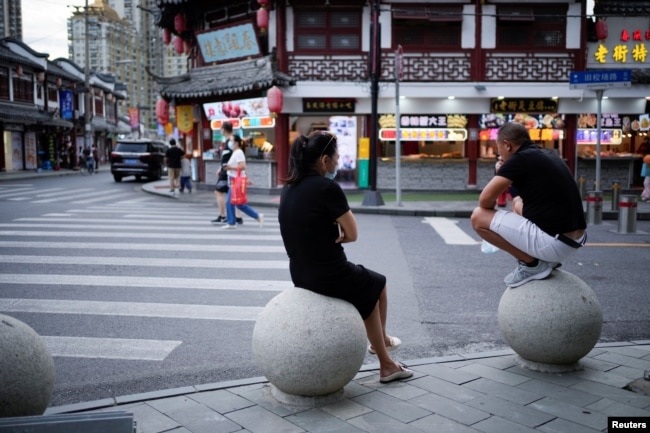Before the COVID-19 pandemic, Doris Fu imagined a different future for herself and her family. She imagined buying a new car and a bigger apartment, eating at nice restaurants on weekends and traveling to tropical islands.
But today, the 39-year-old Shanghai marketing professional is saving her money as much as she can.
Fu and many other Chinese in their 20s and 30s are worried about China’s pandemic lockdowns, the high unemployment rates among young people and a weakening property market. As a result, young Chinese citizens are focused on saving instead of spending.
This frugal way of life has been made more popular by social media. Influencers across social media are sharing their money-saving tips and tricks.
This rise of low-cost living, however, may harm the world’s second-largest economy. Consumer spending makes up more than half of China’s gross domestic product, or GDP.
Benjamin Cavender is a director of China Market Research Group. He said, “We’ve been mapping consumer behavior here for 16 years and in all of that time this is the most concerned that I’ve seen young consumers.”
Unemployment among people aged 16 to 24 stands at almost 19 percent, says government data. Some young people have been forced to take pay cuts. The average salary in 38 major Chinese cities fell 1 percent in the first three months of this year. That information comes from the online job search company Zhilian Zhaopin.
As a result, some young people prefer to save money instead of spending it.
Fu, for example, is a huge movie fan. She said she used to go to the movie theater to see a film two times a month. But, Fu said, “I haven’t stepped inside a cinema since the pandemic.”
Almost 60 percent of people in China are now likely to save more, rather than spend or invest more, according to the most recent study by the People’s Bank of China (PBOC). That number was 45 percent three years ago.
That is a problem for China’s economic policymakers, who have long depended on consumer spending to increase economic growth.
A PBOC official said in July that when the pandemic eases, the willingness to invest and consume will “stabilize and rise.”
The PBOC did not answer Reuters reporters’ requests for comment. China’s Ministry of Commerce also did not answer requests for comment.

’10 Yuan dinner’
After years of rising spending fueled by rising wages, online shopping and easy credit, young people are changing their spending behaviors. The changes bring them closer to the ways of their parents’ generation, whose memories of hard economic times have made them more likely to save money.
But unlike their parents, young Chinese are making a show of their frugal way of life online.
One woman in her 20s in the eastern city of Hangzhou has gained hundreds of thousands of followers by publishing more than 100 videos on how to make dinner for 10 yuan, about $1.45. The woman goes by the name Lajiang on social media.
People on social media are discussing money-saving tips and even creating competitions. The ‘Live off 1,600 yuan a month challenge’ took off among young people in Shanghai, one of China’s costliest cities.
Yang Jun says she was deep in credit card debt before the pandemic. In 2019, she started a group called the Low Consumption Research Institute on the networking site Douban. The group has gained more than 150,000 members. Yang says she is cutting spending and is selling some of her belongings on second-hand websites to make money. Yang also said she has cut out her daily Starbucks coffee.
Fu, the marketing professional, said she changed her makeup brand from Givenchy to a Chinese brand called Florasis, which is about 60 percent less costly.
Yang and Fu are not the only ones in China giving up such goods. Both Starbucks and the French dealer that owns Givenchy have reported sharp drops in sales in China in the most recent quarter.
Fu says she has delayed plans to sell her two small apartments for a bigger one that is near a a better school system for her son. She also has given up on her goal of buying a newer, nicer car.
“Why do I dare not upgrade my house and my car, even if I have the money?” Fu said. “Everything is unknown.”
I’m Ashley Thompson. And I’m John Russell.
The Reuters news agency reported this story. Ashley Thompson adapted it for VOA Learning English
______________________________________________________________
Words in This Story
tropical – adj. of, relating to, occurring in, or used in the tropics
focused – adj. giving attention and effort to a specific task or goal
frugal – adj. careful about spending money or using things when you do not need to
consumer – n. a person who buys goods and services
tips – n. useful information
GDP – n. the total value of the goods and services produced by the people of a nation during a year not including the value of income earned in foreign countries
cinema – n. a movie theater
stabilize – v. to stop quickly changing, increasing, getting worse, etc.
upgrade – v. to choose to have or use something more modern, useful, etc.
